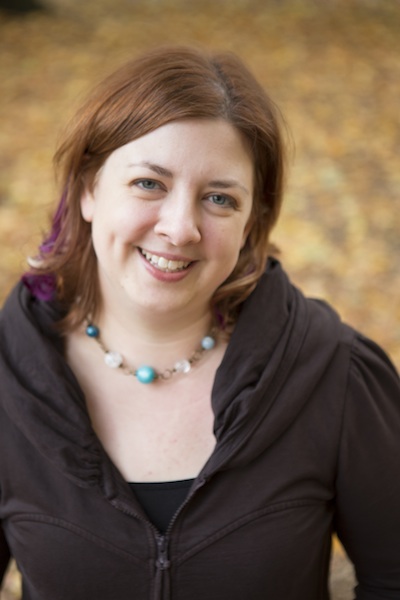Discover & Embrace Your Creative Process
 Tuesday, October 29, 2013 at 2:30AM
Tuesday, October 29, 2013 at 2:30AM 
I was in Portland, Oregon, over the weekend for the Soul Sisters Conference. I led two sessions, one on the power of storytelling and another on writing into the heart of your stories. One of the big things that came up this weekend was finding a writing process that works for you. It's incredibly important to play with your own creative process, to find what works and what doesn't, to mix it up from time to time -- and to remember that no process is right or wrong.
Here's a (slightly modified) post from my blog archive about discovering some important pieces of my creative process.
I sit down at the keyboard. I'm following a snippet of a scene, a hazy idea whispering in maddening mumbles at the back of my brain. I have an impression, an inkling, a vague image that I need to uncover and discover.
I sit down at the keyboard and start a conversation with the words. I slide down rabbit holes, jump over fences, take a bold leap into the bright, high sky.
This is writing.
At least, it is for me.
A lot of the time I have no clear idea what I'm trying to write about until I'm elbow deep in a piece. For me, writing is a process of discovery. I write to know what I think. I write to discover how I feel. I write to create a cohesive whole from jumbled sections of thought floating around inside my mind.
As a result of this approach, my writing process includes a lot of editing and rewriting. I forge ahead, I double back. I tinker. I twiddle. I give and I take. This is writing. (This may also be why I fully believe that editing is a creative act.)
For a long time, I thought my natural writing process meant I wasn't a very good writer. In fact, I worried that it meant I wasn't a "real writer" at all.
I'd thought that "real writers" had an easy time writing. I'd thought that they came to the page pregnant with stories and ready to burst at the seams. I'd thought that this is how it worked for real writers every single time.
Boy howdy, was I wrong. There are times when we writers are ripe with words. Those are the joyful times. But there are other times when we writers have to dig and scratch in the dirt, like a dog or a chicken, looking for words like a bone or an insect, unearthing the story. (There are times when metaphors get fuddled.)
What sweet relief when I realized that my writing process is valid and true. When I embrace this idea of writing as a process of discovery, I can stop struggling so mightily with both with my identity as a writer and with the writing itself. When I realize that the story emerges during the process of writing, I allow myself to relax and do what comes naturally.
One of the worst things we do to ourselves, both as artists and as humans, is to compare ourselves to other people. A lot of times this shows up in comparisons of how good or bad we think our work or life is compared to those around us. But we also tend to judge our processes against other people's processes. We think there's a bona fide norm to which we should aspire.
I thought that I had to master a particular writing process in order to consider myself a good or real writer. My mistake was believing in this elusive idea of the norm.
I make that mistake in other areas, too.
I often make dinner after 10:00 at night because my husband's job forces him to keep odd hours. I'm a natural night owl who can set her own hours, so usually it's not a problem. But instead of reveling in the freedom to make this strange schedule work for us, I used to worry that we were weird and deviant, as though eating dinner at 11:00 p.m. somehow made me less of a mature, responsible adult and contributing member of society. But now I'm beginning to see that this is simply our norm for this time in our life. When I worked a traditional nine-to-five job, my husband and I rarely ate dinner together. Now that I can set my own schedule, I can choose to have dinner with my partner long after some of my friends have gone to bed. And then I sleep for hours and hours after they've gotten up the next day. This doesn't make me lazy. I'm just on a different program, one that works for me.
So I eat dinner during the nightly news, sleep till noon, and pick my way through words blindfolded. Maybe you like to eat dinner during the 5:00 news, get up at dawn, and write whole stories in your head before you ever touch a keyboard or pen. We are each of us our own version of normal. As long as we stay true to that, we'll all be alright.


Reader Comments (1)